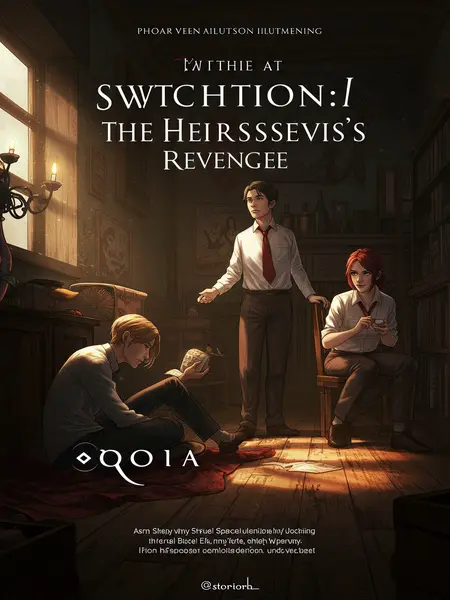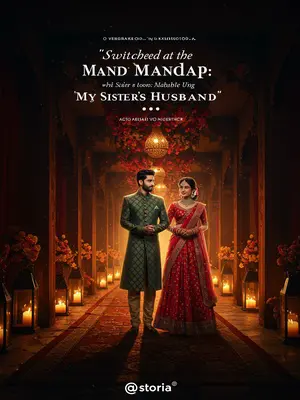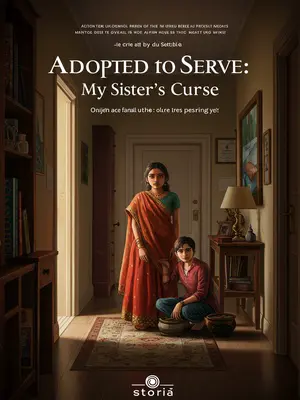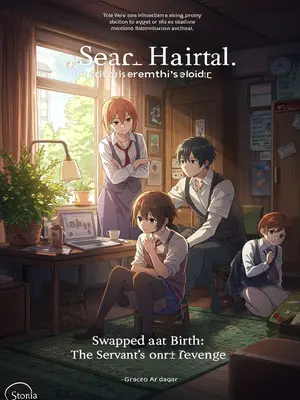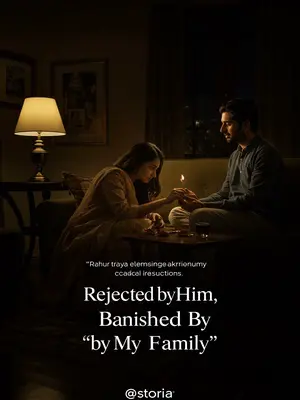Chapter 6: The Price of Kindness
I gave part of my living expenses to the prefect, calling it an ‘advance payment for tutoring.’
The envelope was thick—my allowance for the week, more than she’d see in a month. She stared at it like it might bite her.
She stared at the stack of hundred-rupee notes in the envelope, too stunned to speak.
Her lips trembled, and she pressed the envelope to her chest, murmuring a faint, ‘Thank you, Ananya.’
Actually, whether in my past life or this one, the Kapoor family never mistreated their adopted daughter when it came to food, clothing, or living expenses.
I’d always had enough: hot showers, full plates, the latest textbooks. It was never about the money—only the affection.
But what was pocket change to Arjun Kapoor was enough for Priya Sharma to buy medicine for her grandmother and pay the hospital bills. She could even rent a small place near the school to escape her abusive father.
For her, a thousand rupees was a wall between hope and despair. I saw her eyes light up as she calculated what she could now afford.
After agreeing on a tuition schedule for the next day, I went home.
The auto-rickshaw ride home was quiet, the city’s chaos swirling outside. My bag felt lighter, my heart heavier.
The luxurious bungalow was empty. Mr. Kapoor was on a business trip, Mrs. Kapoor at the salon.
The marble floors echoed with my footsteps. The watchman nodded as I passed, and the maid silently retreated to the kitchen, her anklets jingling softly.
As for Arjun Kapoor, he was probably having dinner at the Mehra family’s house.
No doubt he’d be surrounded by the smells of tadka dal and roti, laughter floating from the kitchen, the Mehra home alive in a way the Kapoors’ never was.
In my previous life, Arjun Kapoor had the driver take me home, and my adoptive parents from the Mehra family warmly invited him to stay for dinner.
They’d fuss over him, making sure his plate was full, Aunty Mehra urging, ‘Beta, thoda aur le lo, bahut mehnat karte ho tum.’
Just like in a TV serial, that dinner allowed the young master—raised in a cold, wealthy home—to feel the warmth of a humble family.
He’d linger at the table, laughing at Uncle Mehra’s silly jokes, lingering long after the last bite. The lights would flicker, and for a moment, he’d imagine this was his real home.
The honest smiles that always graced the Mehra couple’s faces, the small but lively and cosy home—all made Arjun Kapoor long for that kind of affection, and made him fall for the poor little white flower from such a family.
He’d watch me help Aunty with the dishes, sleeves rolled up, humming an old Lata Mangeshkar song, and think, ‘This is what love looks like.’
At this moment, he and Neha were probably happily sharing a simple meal, but both would be very content.
A single tube light, a wobbly table, the sound of a pressure cooker—the recipe for happiness, at least on the surface.
I slowly changed into my Sabyasachi robe, washed my face with Forest Essentials cleanser, ate a bowl of kesar badam kheer delivered by the maid, and sneered.
The taste of the kheer was sweet, but my smile was bitter. I’d learned by now that appearances meant nothing.
No one knew that the Mehra couple, though poor, were not honest people.
Uncle Mehra’s cycle had a squeaky bell; Aunty’s saree always smelled faintly of Surf Excel and kitchen smoke. Their words were always honeyed, but their eyes were sharp—calculating, always watching.
They had always preferred sons. They originally wanted to adopt a boy, but since there were no healthy boys in the orphanage, they settled for a pretty girl, hoping she might attract a wealthy son-in-law in the future.
Uncle Mehra had grumbled, ‘Ladki ka kya hai, ek din toh parayi ho jayegi.’ But when Arjun Kapoor started visiting, his tune changed.
Seeing Arjun Kapoor bring their daughter home, the couple’s hearts soared. They seized the chance to entertain this potential golden son-in-law.
Aunty’s curries became richer, Uncle’s temper gentler—at least in front of Arjun.
So-called affection, so-called warmth—it was all just an act.
Underneath the smiles was a desperation I recognised all too well.
After all, moving the heart of a rich young master was the only card they could play.
Their dreams weren’t for Neha’s happiness, but for the dowry she could one day bring.
In my previous life, when I told them I didn’t want to marry Arjun Kapoor, my adoptive mother locked me in my room, and my adoptive father beat me half to death with a table leg and a belt.
I remembered the pain—purple bruises blooming on my arms, muffled cries behind closed doors, no one coming to help.
Neha thought she had entered heaven this time, not realising there is no real heaven in this world.
Every home has its secrets, every smile its price.
The Kapoor family is a wealthy hell; the Mehra family is a poor hell.
Money changes the wallpaper, not the walls themselves.
Whoever can crawl out of hell alive depends on their own ability.
In India, they say, ‘Apni madad khud karo.’ No one’s coming to save you.
